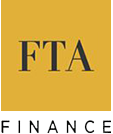What do the banks look for when offering funding for a dental purchase?
Buying a practice can seem a daunting proposition; it’s often something that a dentist may do only once in their career, and therefore they’re unlikely to have any experience of the process . Here, David Brewer, Managing Director at FTA Finance, shares some of what he’s learnt over the years about funding for a dental practice.
What do the banks look for when assessing the strength of a client looking to purchase a dental practice?
Many individuals underestimate the significance of their CV, which is actually the most critical document. Although most CVs are impressive clinically, they often lack sufficient managerial experience. To reassure lenders, it’s important to demonstrate suitable managerial skills to manage the practice successfully, which can often be acquired through day-to-day operations. Before sharing it with a potential lender, highlight these qualities in your CV.
Lenders will typically request a summary of the applicant’s personal asset/liability profile, personal outgoings, and a breakdown of prior earnings, preferably in the form of Accountant prepared accounts, as well as bank statements. They will then evaluate the practice’s accounts and valuation or sales prospectus to determine the strength of the business, growth potential, and ability to repay the loan based on the purchaser’s proposed management plan, with sufficient funds to cover their personal drawings, tax and future reinvestment.
Since it’s impossible to predict the future, clients should prepare two scenarios, a conservative (or worst-case) model demonstrating no growth in revenue after acquisition, and a second model displaying the full impact of proposed changes. This approach helps both the lender and purchaser fully comprehend the risks involved and assures them that the purchase is feasible.
Do all banks look for the same thing when considering funding for a dental practice?
To put it simply, no, the credit criteria can differ greatly from one lender to another. Factors such as the amount of deposit, the proportion of private and NHS patients, and whether the property is leasehold or freehold can all influence a bank’s decision. This is where someone trying to arrange financing directly may encounter difficulties.
At FTA Finance, we work with 14 high street banks and several smaller niche lenders. We understand that even when dealing with the same bank, the lending decision may vary depending on which managers we approach. It is essential to know which managers are “pro-active” and who to contact.
Pricing also differs significantly from lender to lender, which is why it is critical to work with a specialist broker who can negotiate flexible and competitive terms on your behalf.
Your specialist broker will understand how to present a financing proposal to the bank and package the case appropriately. This will ensure that your proposal receives priority treatment, attracting competitive and flexible terms that are unlikely to be replicated if you approach the lenders directly.
Are there regional differences?
Theoretically, there should be no difference in a bank’s lending criteria for acquiring a practice in the West Country compared to the South East. However, higher property and goodwill prices in the South East may make it slightly easier to purchase a practice outside of this area due to the generally lower prices and lower required cash contribution, which may be more affordable.
Before making a commitment, it’s a wise idea to conduct a financial pre-assessment. Reputable brokers can provide this service free of charge, providing a realistic purchase budget and directing potential buyers towards suitably sized practices. Brokers can also provide pre-assessment certificates for buyers to present to sellers and sales agents, which demonstrate their commitment and strengthen their position as serious buyers.
Do lenders prefer NHS to private?
Typically, yes. Most banks tend to favour NHS income due to its security and stability, and their lending criteria reflects this preference. However, in my personal opinion, this may not always be the best approach. As a buyer, I would be particularly interested in acquiring a well-established private practice in a suburban area, as it would offer greater control over future revenue streams without the potential risk of the NHS changing terms and conditions down the line.
How do rates and terms vary — and why?
Recently, we’ve seen a significant range of bank loan margins, from as low as 1.8% over the base rate to an incredibly high 7.6% over the base rate. One of our clients received a quote for the latter, which was from their current bank for a £400k loan to acquire a second practice. However, with some research on our part at FTA Finance, we were able to secure alternative terms for the client at a much lower 2.95%. The choice for the client was obvious.
A specialist healthcare broker will have established connections and agreements with major lenders and, in some cases, can obtain favorable borrowing terms that may not be available if the client approaches the lender directly. As the above example illustrates, there is a significant variation between lenders, which can be time-consuming for an individual dentist to navigate.
Even as a commercial mortgage adviser, when my fixed-rate home mortgage expired, I sought the services of a specialist independent personal mortgage advisor to find the best deal for me. I did not have the time to research personal mortgages myself, and I certainly would not have had the leverage as an individual to obtain the terms that my mortgage broker secured. If it works for your home, it can work for your business too!
We are able to source a wide range of innovative and competitive Healthcare Finance packages specifically tailored to, and for, Healthcare Professionals such as:
Remember!
You are in a specialist market so use a specialist broker who understands your sector. With access to major banks and specialist niche healthcare lenders, we know the types of proposals that are synonymous with this sector.









